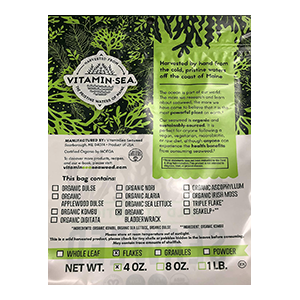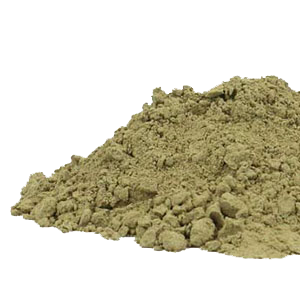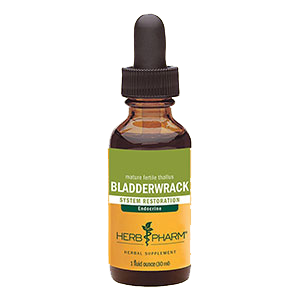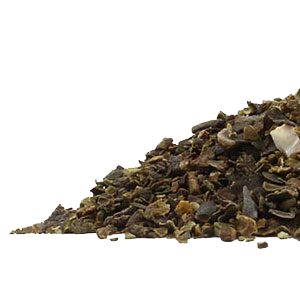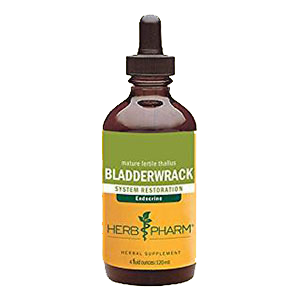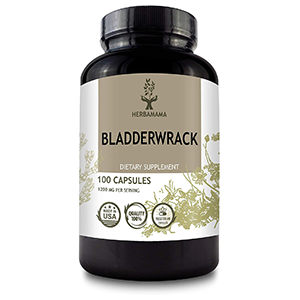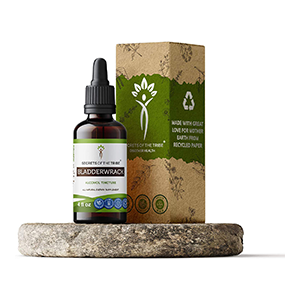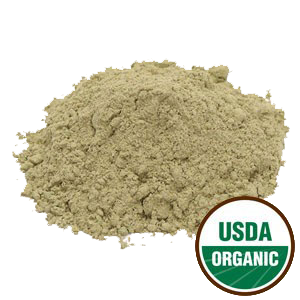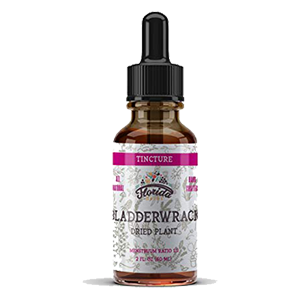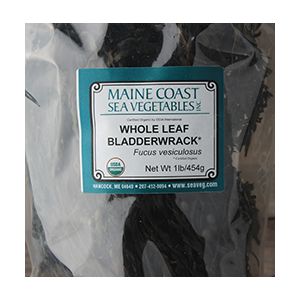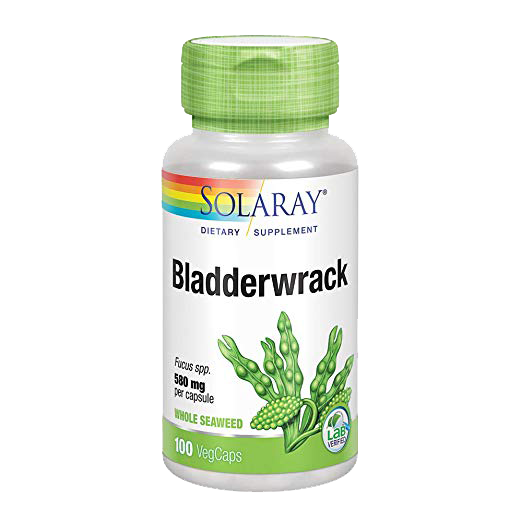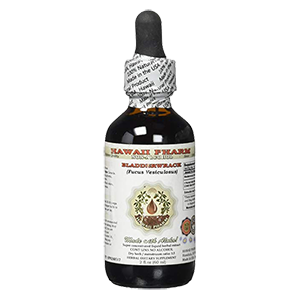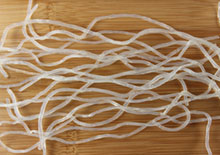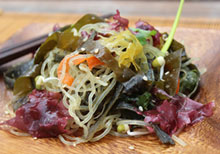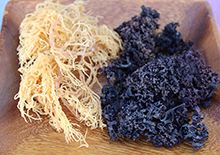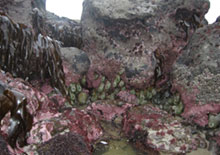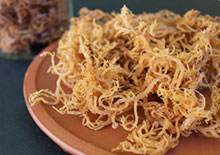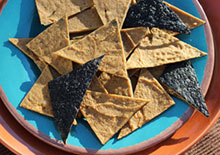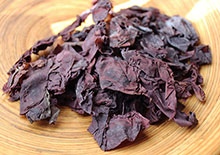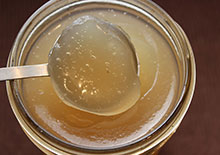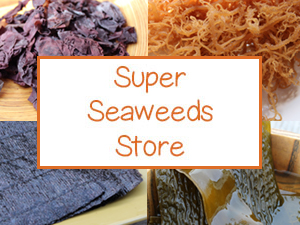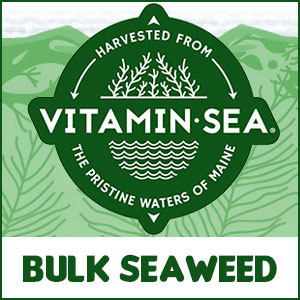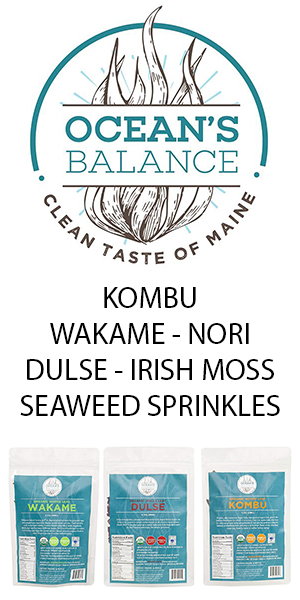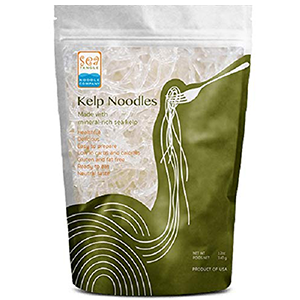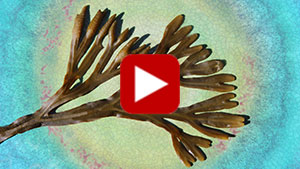Bladderwrack Seaweed Supplement, A Good Source of Dietary Iodine?
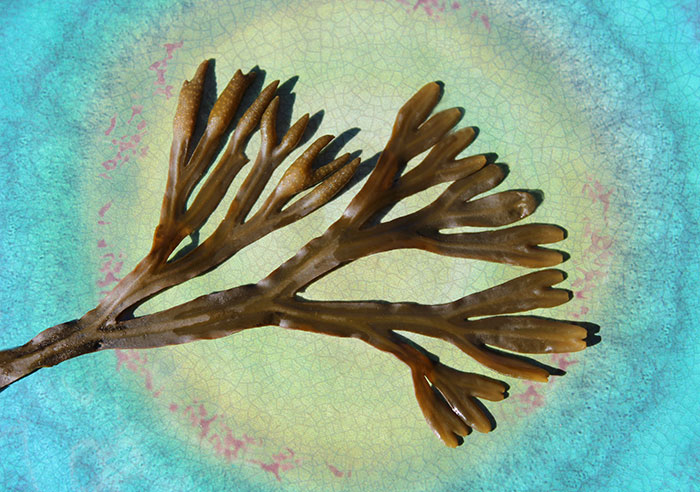
Bladderwrack is a type of sea vegetable or seaweed that is found most commonly in colder waters along rocky coastal regions in the Northern Hemisphere. Sometimes generically referred to as "fucus", there are many shapes, sizes and variations of the Fucus vesiculosus species.
Over the years here in Northern California, we've explored lots of majestic and pristine seaweed harvesting locations during low tide especially in the early summer when seaweed growth is at its peak. Often, bladderwrack can be the most dominant shoreline species, along with kelps like feather boa and bull kelp.
Unlike other varieties such as nori or dulse, bladderwrack is not known for its flavor but is more frequently used as a nutritional supplement, not usually as a food condiment or recipe ingredient.
Just to briefly mention, when it comes to purchasing seaweeds, quality is especially important. We only recommend consuming bladderwrack seaweed products that have undergone thorough lab testing and are also certified organic. We cover this topic in more detail in our Purchasing Quality Seaweeds section below.
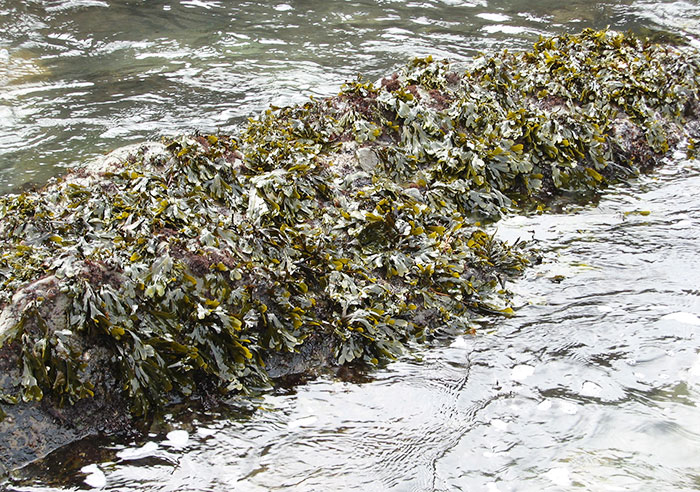
What is Bladderwrack?
Bladderwrack seaweed is predominantly found along coastal shore regions of the Pacific and Atlantic oceans, the North Sea as well as the western Baltic Sea.
"Wracks" in the Fucus genera are a robust and hardy olive-brown colored sea vegetable with tough thick fronds or "thallus" that are forked and sometimes have a fan-shaped appearance. If you've ever harvested fresh bladderwrack, as we have, one prominent feature is its high amount of mucilage which creates a very slimy surface feel, even more than many kelps.
Bladderwrack, much like other Fucus species, have many rounded "bladders" or gas-filled pneumatocysts within the leaf-like fronds.These bulbous vesicles provide buoyancy and allow it to float on the surface of the salty water where it receives ample sunlight to stimulate its dense and prolific growth via photosynthesis.
According to Algae Base (an online seaweed classification resource) bladderwrack seaweed, from the genus Fucus, includes many other species and subspecies variations of Fucus vesiculosus Linnaeus.
While it is often considered a "type of kelp", it is from the order Fucales. Most kelp varieties come from the order Laminariales. Bladderwrack is frequently referred to as Fucus, whereas kelps are often referred to as Laminaria. They are both however from the same brown algae class: Phaeophyceae, which are the largest plants known in ocean waters.
Another related species Ascophyllum nodosum or Fucus nodosus, also called "rockweed", is from the order Fucales and is the main ingredient used in commercial kelp meal fertilizers for its high nutrient profile. Though it is a Fucus-related variety, it goes by the common name's Norwegian kelp or knotted kelp as well as knotted wrack or egg wrack.
Bladderwrack as a Natural Source of Dietary Iodine
Bladderwrack seaweed has been valued historically in seaweed producing regions as a nourishing source of natural chelated iodine, an essential mineral nutrient for healthy thyroid gland functioning.
Most of the iodine present on planet earth is found in ocean seawater. Sea plants, especially brown seaweeds like kelp and bladderwrack, are one of the most abundant dietary sources of concentrated iodine.
These brown seaweeds were in fact the first sources of iodine discovered and isolated by French chemist Bernard Courtois back in 1811.
Bladderwrack contains a stable non-radioactive iodine present in a whole-food "chelated" format, along with other trace minerals and phytonutrients.
If you do not have enough iodine in your body, you cannot make the required number of thyroid hormones, mainly thyroxine (T4) and its conversion to the active form triiodothyronine (T3). Over time, this can cause symptoms such as fatigue, low metabolism and weight gain issues associated with conditions like hypothyroidism and goiter.
Along with a health-promoting diet and lifestyle choices, iodine-rich food sources can help to nourish the endocrine system and influence proper thyroid gland functions.
While kelp seaweeds are known to be substantially higher in iodine, bladderwrack is customarily the main seaweed frequently used in natural thyroid support supplements for humans as well as dogs.
When used as a dietary adjunct, most holistic health professionals encourage supplementation with powdered fucus seaweed, measured out in small amounts to start or taken in capsule form.
According to Ryan Drum, PhD (aka Fucus Man), Fucus or bladderwrack contains diiodotyrosine (DIT). (*) This is the precursor to T4 which still needs to be converted to T3. (Note: The mineral selenium is very important for this conversion process.)
Currently, the general RDA (Recommended Daily Allowance) for iodine is:
- 150 mcg - men
- 150 mcg - women
- 220 mcg - pregnancy
- 290 mcg - lactation
Keep in mind, these numbers can vary depending on age and health conditions. In addition, there are some practitioners of holistic medicine, like Dr. David Brownstein, that believe these levels are largely inadequate and should be much higher. In his book "Iodine: Why You Need It, Why You Can’t Live Without It" he discusses more about why "more" iodine might be better in today’s modern world.
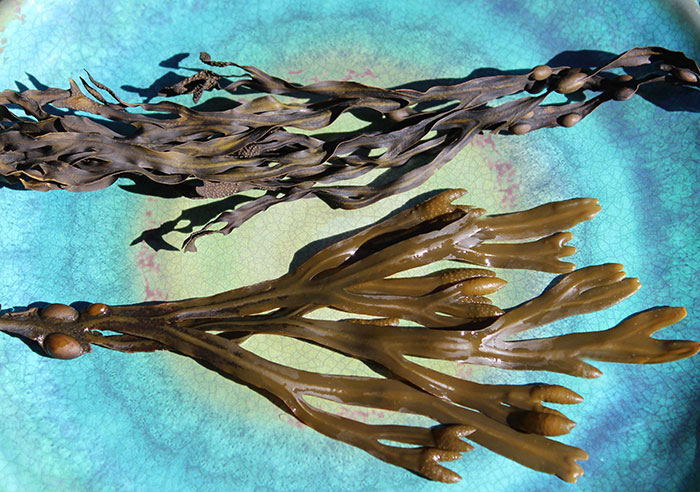
Why Supplementation May Not Be Appropriate for Everyone
One potential issue with using seaweeds like bladderwrack as a supplement is that iodine quantity may vary considerably from product to product and, if the brand doesn't specify exactly micrograms (mcg) of iodine per serving, then you have no way of knowing how much you are taking.
The National Institutes of Health (NIH) references seaweeds to be one of the best food sources of iodine, but also mentions they are "highly variable" in their content. (*)
If you're simply wanting to nutritionally fortify the diet, bladderwrack seaweed or supplements might be a viable option to consider. Yet, for those with thyroid issues, a quality liquid iodine preparation might be more suitable.
Caution If You Have Thyroid-Related Disorders
Bladderwrack supplementation, in our opinion, should be used as a preventative approach for general thyroid health and maintenance. If you are concerned about iodine deficiency, it is important to seek the advice of an endocrinologist or qualified health professional and get further testing before attempting self-treatment.
This may involve blood testing beyond the standard TSH test to determine your current thyroid hormone profile and/or evaluate other specific factors related to reduced iodine uptake and conversion.
While conditions like hypothyroidism or an underactive thyroid might improve by consuming dietary bladderwrack, if you've been diagnosed with a thyroid disorder it is important that iodine supplementation be conducted under the supervision of a medical physician.
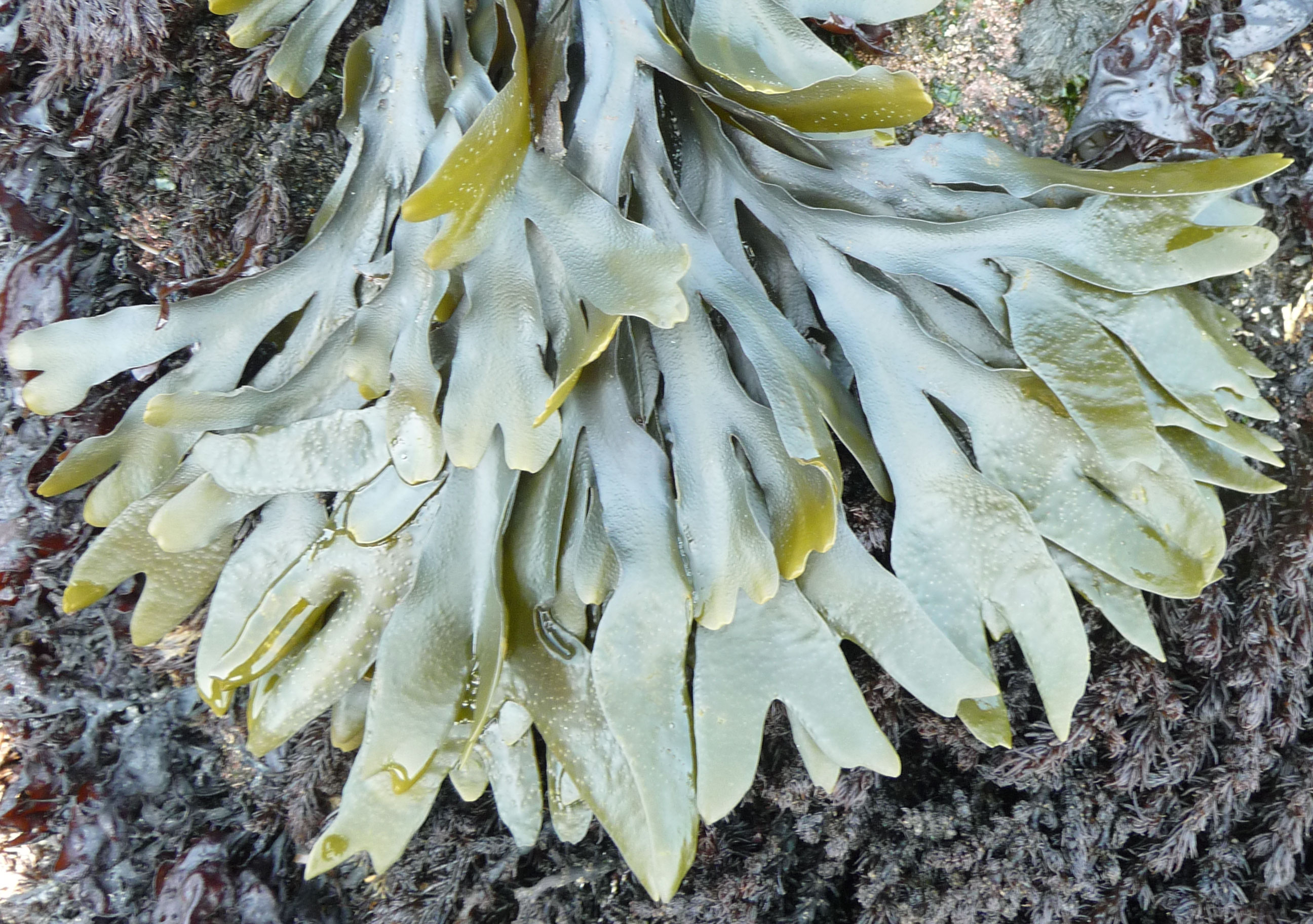
Contains Polysaccharides Known for Anti-Inflammatory Influence
One of the key beneficial components in sea vegetables are that they are a valuable source of polysaccharides. Many varieties are in fact extracted commercially for these compounds and extensively utilized in food products, cosmetics and for other industrial applications.
The Fucus vesiculosus species contains the polysaccharides known as fucoidan, fucoxanthin, algin and laminarin. These are the mucilage producing components high in dietary fiber and helpful for their potential anti-inflammatory influence.
A common seaweed variety on coastal shores of the British Isles, bladderwrack has a long history of use in this region, where it was largely utilized as an "herbal" and nutritive substance. Bladderwrack and the Fucus serratus subspecies was particularly used for relieving arthritic conditions as well as repairing skin issues as in the famed traditional Irish "seaweed bath".
The Greek physician Dioscorides in the classic De Materia Medica, mentions the use of bladderwrack for "gouty afflictions and inflammation". (Source)
Fucoidan, a fucose-containing sulfated polysaccharide, has in fact been shown in research to be effective at reducing inflammation for certain health conditions and the symptoms associated with osteoarthritis.
Bladderwrack is likewise a source of anti-inflammatory phlorotannins, a compound produced as a chemical defense against marine snail predators.
Mucilaginous fucus seaweed is often considered to be a type of demulcent "herb", which can offer soothing effects and cleansing actions that may be helpful for reducing gastrointestinal inflammation.
Bladderwrack Seaweed as a Potential Detoxifier and Radioprotective
Alginate is one of the polysaccharides in sea vegetables known for its ability to prevent the absorption of various ingested toxins and chemical mutagens.
According to seaweed guru Ryan Drum PhD, iodine-rich seaweeds like bladderwrack can protect the body and specially the thyroid gland from radioactive nuclear isotopes like iodine-131, the most common radioiodine contaminant created from nuclear fallouts. (*) In other words, when dietary sources of iodine-127 are present, it can offer a radioprotective effect by blocking the uptake of radioactive iodine-131.
Likewise, in the book "Iodine: Why You Need It, Why You Can’t Live Without It", Dr. David Brownstein mentions "If we are ever confronted with a Fukushima-like event, iodine sufficiency would be a protective factor minimizing problems with radioactive iodine exposure".
Iodine supplementation is believed by some holistic physicians, like Dr. Brownstein, to also protect against common toxic goitrogens such as bromide, fluoride and chlorine.
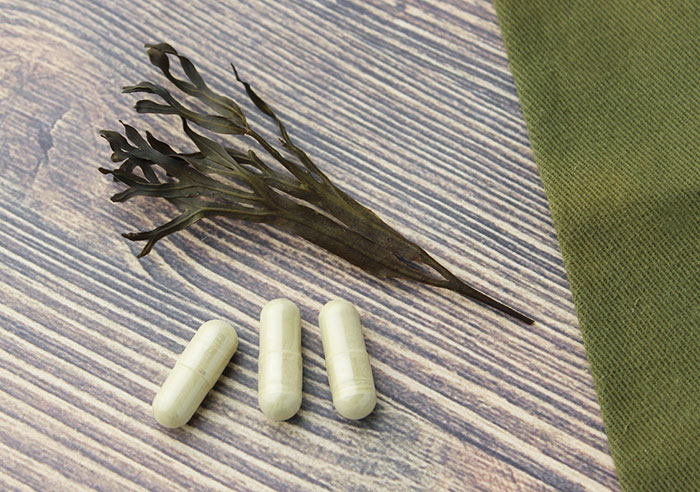
Why Bladderwrack is Used for Weight Loss?
Bladderwrack capsules are often marketed as a weight loss supplement. One of the reasons for this is because of their polysaccharide content, which acts as a source of dietary fiber, and can consequently exhibit laxative effects on bowel functions and provide relief for constipated conditions. (*)
Powders, capsules or tablets consumed with plenty of water can be very effective for such purposes.
Secondly, bladderwrack seaweed, as a source of dietary iodine, is known to stimulate metabolism and of course iodine itself is valued in cases of hypothyroidism, in which weight gain is a common side-effect. (*)
Lastly, it is considered a natural diuretic which may help to flush out fluid excess and reduce water retention and bloating. Bladderwrack extract, interestingly, is frequently found as a natural ingredient in many anti-cellulite creams as it’s been shown to tighten collagen structure and may help to reduce dimpling.
Even the classic book King’s American Dispensatory, first published in1854, mentions Fucus vesiculosus as an extract or pill "for the purpose of lessening obesity".
Purchasing High Quality Seaweeds
While seawater contains a wealth of beneficial minerals and other nutrients, it can also be contaminated from human created toxins, like petroleum residues, radioactive isotopes, sewage waste, pesticides and herbicides as well as heavy metals.
It is therefore particularly important that the seaweeds we consume, not only come from pristine ocean waters that are less likely to be exposed to these toxic substances but also, we recommend varieties that have also undergone lab testing to monitor potential impurities and/or have taken measures to offer organic certification.
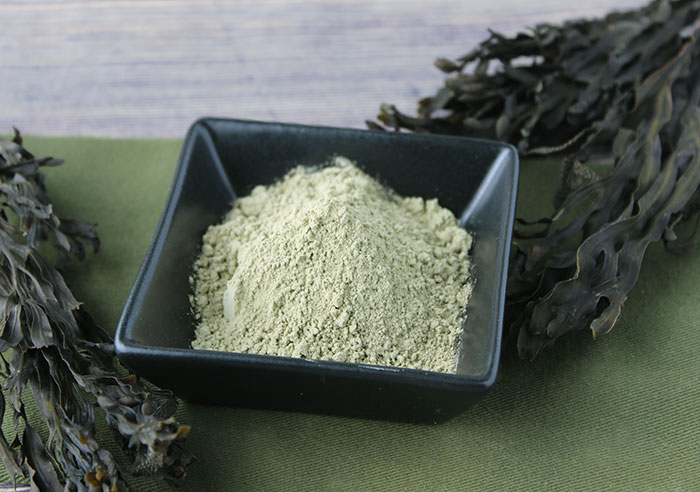
How to Use
Bladderwrack is one of those seaweeds that has a stronger fishy taste that some people may find less palatable. It is not generally sprinkled on meals for this reason, but more frequently powdered and consumed in capsule form as a supplement to one's diet.
We find in our research, that iodine content may be reduced by heat. Therefore, bladderwrack powder, for highest iodine uptake, might be best consumed in its unheated state. Small amounts can be mixed into water or easily camouflaged into blended raw soups or drinks.
Whole dried pieces, flakes or powders can be used in soups, broths and stews for nutritional fortification as well as to add a thick consistency. Large pieces are generally discarded after the cooking process.
For highest quality powders, we recommend purchasing whole dried bladderwrack and grinding it down fresh. Whole seaweeds can also be used in bath water for their soothing and skin-moisturizing attributes. We absolutely love the company Maine Coast Sea Vegetables and have been using their seaweeds for almost 20 years. They are certified organic and undergo through testing for various contaminants.
Bladderwrack supplements are also available as a liquid extract. Supplemental doses for both capsules and extract can vary depending on product, individual health condition or as directed by a health practitioner.
Generally speaking, it is best to start with small doses of bladderwrack for use as a nutritional adjunct to the diet.
Precautions:
Bladderwrack seaweed may contain shell fragments and should be avoided by those with allergies to shellfish or other seafoods. Always seek the advice of a qualified healthcare professional, before consuming bladderwrack, if you are pregnant, nursing, have a thyroid-related issue, a serious health condition or are taking prescribed medications.
Shop Related Products (About Affiliates & Amazon Associate Paid Links)
Affiliate Disclaimer: This section contains affiliate product links. If you make a purchase through our recommended links, we receive a small commission at no additional cost to you. Thanks for the support.
